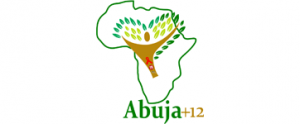12-16 July 2013 – Abuja+12: African Leaders Renew Their Commitments to Eradicate HIV, Tuberculosis and Malaria on the Continent
Published on Tuesday, 16 July 2013 09:55
“Ending HIV/AIDS, TB and Malaria is not going to be easy, not going to be quick, and not going to be cheap. It is a huge investment that is absolutely guaranteed to bring enormous returns” – with these words Dr. Nkosazana Dlamini Zuma, Chairperson of the African Union Commission opened the African Union Special Summit on HIV/AIDS, Tuberculosis and Malaria – Abuja +12.
Based on the theme “Ownership, Accountability and Sustainability of HIV/AIDS, Tuberculosis and Malaria Response in Africa: Past, Present and the Future’’, leaders from all over Africa renewed commitments to fight AIDS, tuberculosis (TB) and malaria and undertook to scale up actions aimed at eliminating the three epidemics as part of an overall goal to eliminate extreme poverty by 2030. African leaders issued a declaration, “Abuja Actions toward the Elimination of HIV and AIDS, Tuberculosis and Malaria in Africa by 2030” in which they in which they committed, inter alia, to “Implement effective and targeted poverty elimination strategies and social protection programmes that integrate HIV/AIDS, TB and Malaria for all, particularly the vulnerable populations”; and “Review relevant laws and policies at national and regional levels to strengthen rights-based protection for all vulnerable and key populations in the context of the three diseases.” During the summit, UNAIDS and the African Union launched Abuja +12: Shaping the future of health in Africa that reviews progress made since the AU’s 2001 Abuja Declaration and includes recommendations for a healthier Africa.
UNAIDS also launched a new treatment framework, Treatment 2015, to accelerate action in reaching 15 million people with antiretroviral treatment by 2015. Treatment 2015 emphasizes the importance of HIV testing and counseling as a gateway to expanding access to antiretroviral therapy and that further efforts are required to normalize HIV testing. During the Pre-Summit Experts’ meetings, the HIV, Health and Development team of the UNDP Africa Regional Service Centre held a panel event on Strengthening Legal Environments for HIV. Short guidance documents, Legal Environment Assessment for HIV – An operational guide to conducting national-level legal and regulatory environment assessment for HIV were produced and disseminated among the participants. They are available in English, French, Portuguese and Arabic.
Access a variety of reflections on the Abuja +12 summit here.
